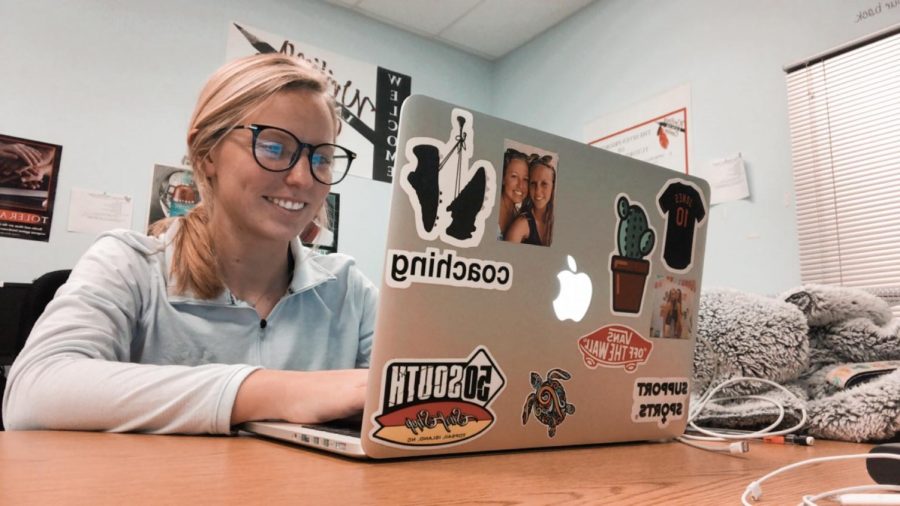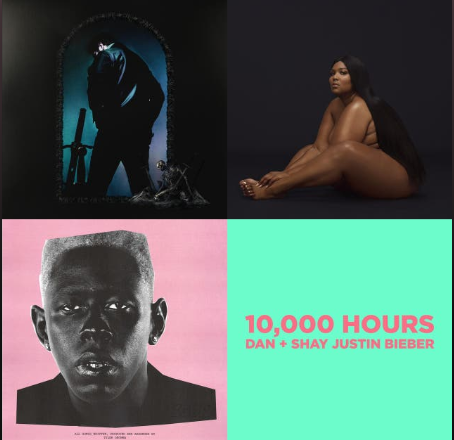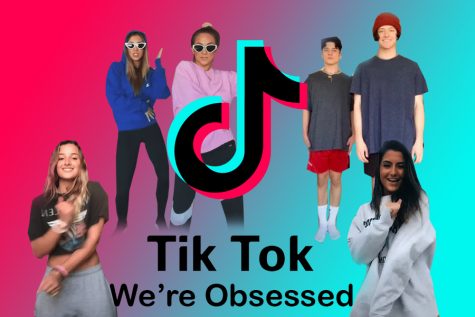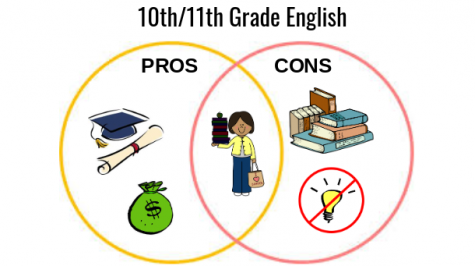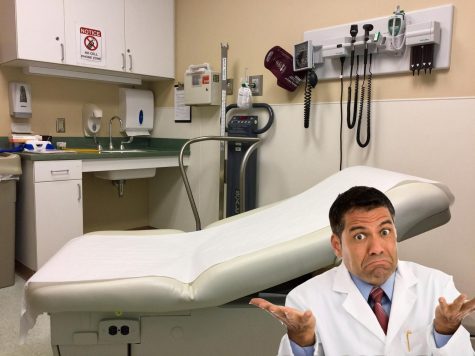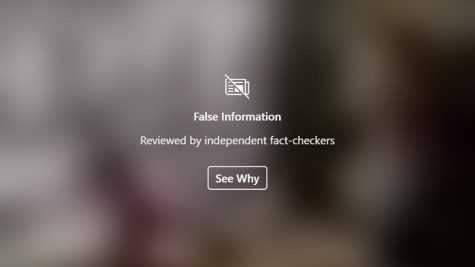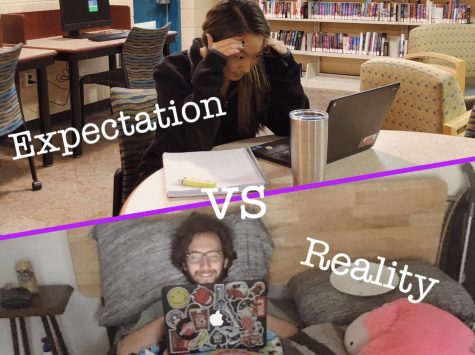Four eyes make you look smart: Be smart with blue light glasses
Sammie Hoefs using her blue light glasses while working on her school work.
January 24, 2020
Remember your first pair of glasses, the ones you didn’t wear in school because you were so embarrassed? Your mom said, “They make you look so smart.”
But you didn’t want to be smart. You didn’t want to wear the glasses. Now it’s cool to be wearing glasses–except the “prescription” is for blue light blocking.
“The Latest Digital 2019 Report, from Hootsuite and We Are Social, shows we are spending on average 6 hours and 42 minutes online each day,” according to The Next Web.
Many famous eyewear companies are creating blue light glasses as a part of a new line, like DIFF Charitable Eyewear. Katelyn Brown, created her own line of DIFF eyewear with blue light blocking lenses.
Blue light is electromagnetic radiation with a short wavelength, which results in more energy. It is considered the most powerful form of visible light; therefore, people can see and absorb the light. Blue light comes from the sun, which is the most significant. Artificial sources like everyday gadgets emit blue light as well, like televisions, smartphones, laptops, and tablets.
Due to the proximity of screens and how much time an average person spends on their devices, the long-term effects raise a concern.
However, according to UC Davis Health, “Since the eye is not good at blocking blue light, nearly all visible blue light passes through the front of the eye (cornea and lens) and reaches the retina, the cells that convert light for the brain to process into images.”
What are blue light glasses? They are glasses that filter out almost all of the blue light from everyday gadgets. They help protect from eye strain and can even help people sleep more easily.
According to DIFF website, “American adults spend more than 11 hours per day watching, reading, listening to or simply interacting with digital screens.”
I have my own pair of blue light glasses and absolutely love them.
When buying a pair of glasses, there are all types of styles and color lenses. You can get blue light in your prescription glasses as well. However, if you’re like me and do not need glasses, you can buy cheaper ones online.
“My doctor gave me the option to add blue light blockers to my prescription glasses for just a little extra money, so I decided to go with it. It has helped with my headaches since I am looking at my computer a lot,” said senior, Kat Taylor.
My first purchase, the glasses had a yellow lens, which is the typical lens for blue light glasses. I returned them and purchased glasses with transparent lenses, so I could have a more natural look in my everyday wear.
Amazon has a wide selection. Blue glasses can range anywhere from $20 to $100. You can purchase cheaper glasses, prescription glasses with your doctor, or through popular eye wear companies.
Market Watch predicts the blue light glasses market will increase to 27 million dollars by the year 2024, which is an 8.3% increase.
There are health benefits to blue light. It can boost alertness and can increase mood.
The cons to excessive blue light is that it can cause severe headaches, ruin wake and sleep cycles, and cause eye strain after using technology for a period of time. Blue light blocking glasses is one method of improving vision, but they must be used in conjunction with healthy eating and sleeping habits.
“I love my blue light glasses because I can wear them even with my contacts, and they help reduce my headaches when I am on my computer for school. Since I have less headaches, this helps me sleep a lot easier,” said junior, Carolina Heister.
According to the AOA, “Children may be at higher risk for blue light retinal damage than adults. The juvenile lens absorbs less short-wavelength light than the adult lens, allowing more blue light to reach a child’s retina.”
Keeping that in mind, should schools consider blue glasses being a school supply essential? Linganore is a 1:1 school, so every student has a computer, and we use them all day long. It’s a no-brainer. We need healthy eyes for the next 80+ years.


